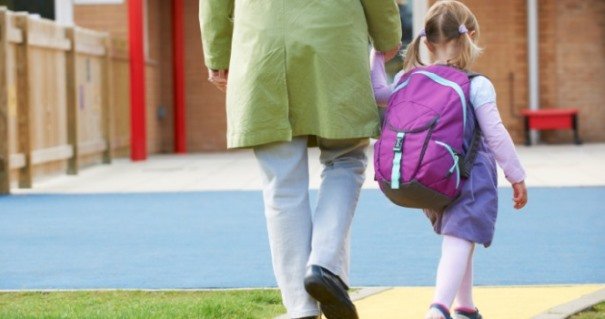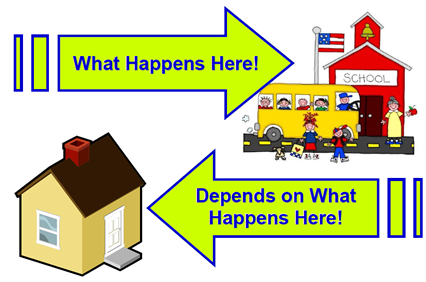Transitioning into formal education - the child, the school and the family
The middle childhood of children throughout the industrialized world are devoted to formal education. Those who are not homeschooled go to primary school. The first school day is often regarded as the most memorable, but also as one of the most important steps into the “big world”. With brand new school uniform and supplies, the pictures start clicking and children know that this is it! They think of themselves as “big” and feel proud of going to do some serious business at school.

However, not all children feel the same way. Some are often afraid and apprehensive about this transition, especially those who did not attend preschool. Suddenly, they are forced to grow up and it’s expected of them to make emotional and social adjustments. The safe environment now becomes a threat and a whole new environment should be entered, all alone. Parents may also feel the same apprehensiveness towards this big step and start questioning whether their child is ready for school.
The demands of formal schooling is based on verbal communication and language skills, as well as school-entry literacy and numeracy skills. They are mostly required to have some level of social skills too as they will have to follow rules, make friends and be able to communicate with their teachers. A positive attitude towards learning is not mandatory but will help a great deal with creativity, problem-solving, initiative and task-persistence.
The school, however, should also be ready for its students and provide a means of smooth transitioning into primary school – not only for the learners but also for their families. When a continuity is created between the student’s early learning and those of the primary school environment, it already shows its readiness for those new students. Teachers should be competent, qualified and most importantly, compassionate but it should be noted that an adequate supply of good quality learning materials is needed to keep children interested in what they are learning. This is also why it is so important that the school should be able to bridge the cultural divide between that of home and that of school. Students whose first language differs from the language of instruction should be able to fit in by means of what the school offer them, thus the school should be child-centered and promote social learning.
One thing is definitely sure – the school and the child can be as ready as they can be, but the attitudes of the parents and their involvement in this transition is the most important part, not only for the child but also for the school. A stimulating home environment and supportive parenting can be what makes or breaks the whole schooling process for the child, the school as well as for the family.



Team South Africa banner designed by @bearone
Indeed. Parents need to take responsibility as well. There are exceptions though, we struggled with our boy. He doesn't adapt well to change. There were reasons for that though. Anyway, an interesting article I came across a while ago was about Lego being more beneficial to younger kids (around 6-8 years if I recall correctly) than putting them into a schooling system at that age. Had both creative and mathematical benefits. If you haven't read about it I'll see if I can track it down :):)
Thanks @therneau. If you can find it, I'd love to read it!
Ah, here you go. Thought I might battle but found it easy enough
https://www.google.co.za/amp/s/amp.theguardian.com/education/2016/mar/15/children-learn-play-age-eight-lego
Awesome post I totally agree @bdmomuae
Very good post, followed
Congratulations! This post has been upvoted from the communal account, @minnowsupport, by bdmomuae from the Minnow Support Project. It's a witness project run by aggroed, ausbitbank, teamsteem, theprophet0, someguy123, neoxian, followbtcnews/crimsonclad, and netuoso. The goal is to help Steemit grow by supporting Minnows and creating a social network. Please find us in the Peace, Abundance, and Liberty Network (PALnet) Discord Channel. It's a completely public and open space to all members of the Steemit community who voluntarily choose to be there.
This post has received a 0.63 % upvote from @drotto thanks to: @banjo.
Great post! Thanks for sharing
meep
meep
we all have a role to play everyday, what you put into your kids is what you will get out, if things at home is upside down his progress at school will be upside down